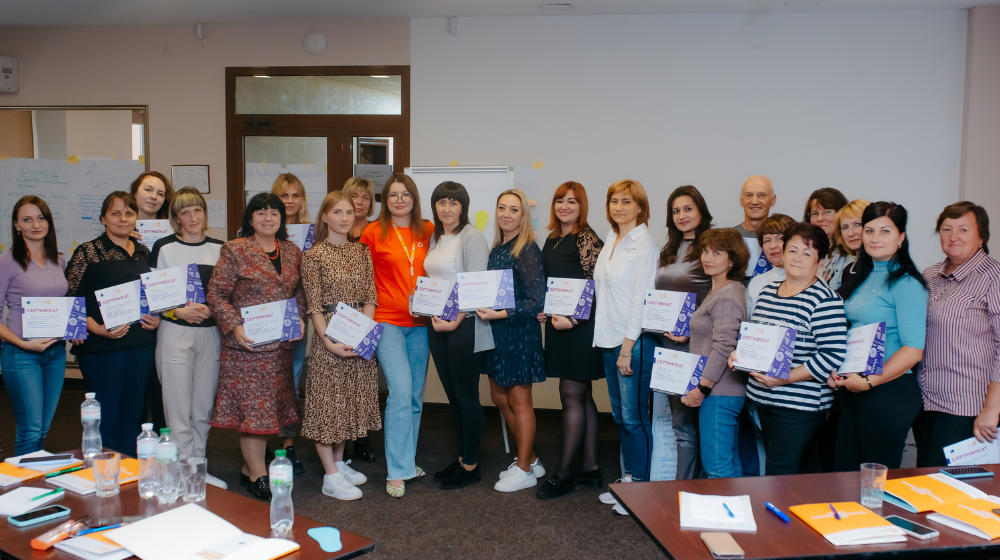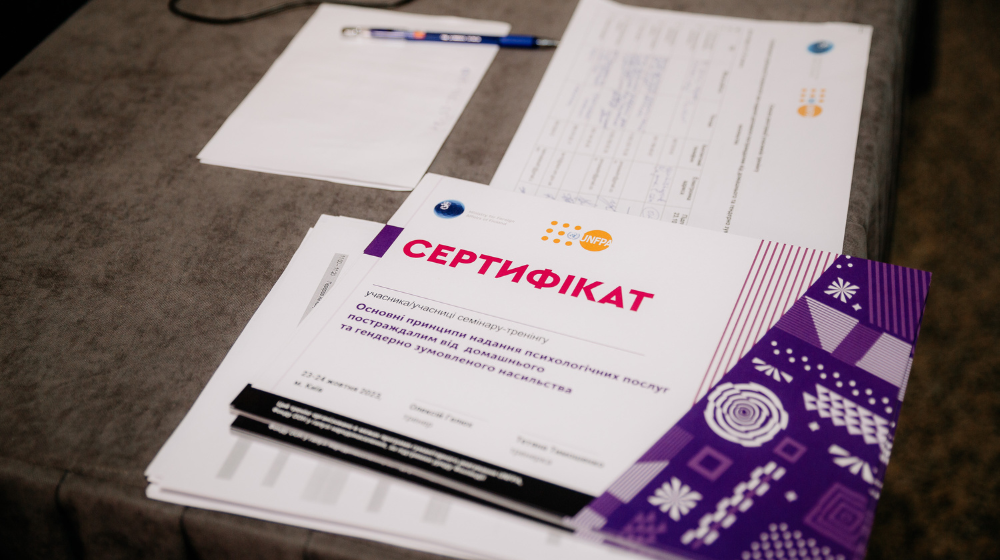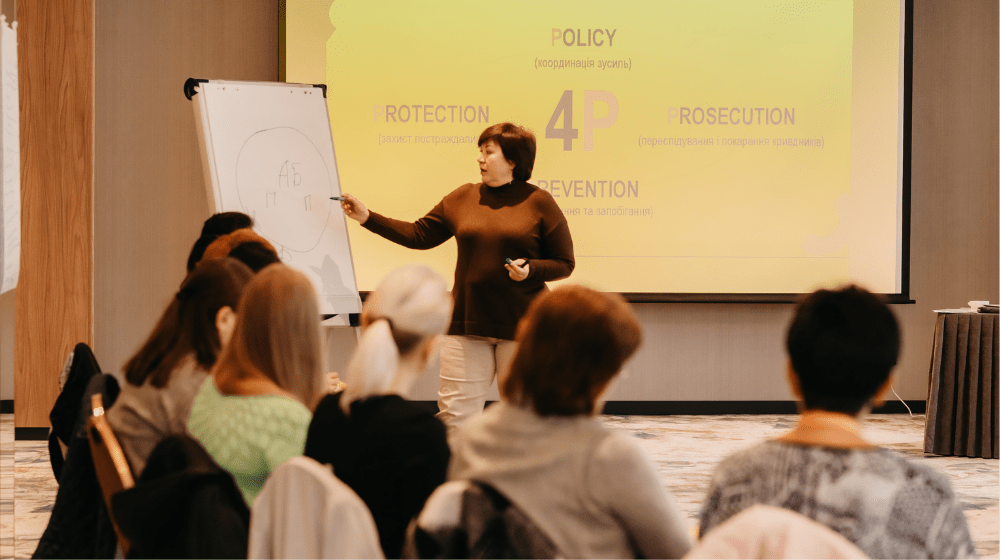With financial support from the Government of Finland, UNFPA organized eight two-day workshops in October for 159 service providers from 24 regions of Ukraine. These training sessions were focused on the prevention and response to gender-based violence (GBV), with the aim of enhancing the capabilities of managers, social workers, and psychologists in addressing GBV cases and providing support to survivors in the midst of the humanitarian crisis brought about by the ongoing war. Workshops were convened in recognition of the urgent necessity to address the substantial challenges, which include the effective response to GBV, sexual violence and conflict-related sexual violence (CRSV), along with the evolving demands in assisting survivors, individuals at risk of violence, and the most vulnerable groups in Ukraine.

The training sessions were structured to offer hands-on instruction to attendees on recognizing, reacting to, and referring survivors to relevant services. These sessions placed a paramount emphasis on the vital importance of taking a survivor-centered approach, ensuring that every intervention prioritizes the well-being, dignity, and empowerment of survivors, thereby fostering a more compassionate and effective response to GBV. In 2023, a total of 1,148 state service providers actively participated in the workshops, which covered a wide range of topics related to domestic violence, GBV, CRSV, and survivor rights.


UNFPA and its partners maintain their steadfast dedication to collective efforts aimed at preventing and addressing cases of GBV in Ukraine. Through its ongoing programmes and projects, UNFPA is actively engaged with the Ukrainian Government, civil society organizations, and various stakeholders to advance gender equality, mitigate violence against women and girls, and safeguard the rights and dignity of survivors.
Workshops on preventing and responding to gender-based violence, conducted by UNFPA with the financial support of the Government of Finland, marked a significant stride in fortifying the readiness of state service providers to handle GBV cases and offer survivor-centered support. Continuing collaboration is essential for the development and execution of initiatives that bolster the prevention and response to GBV and the delivery of comprehensive services to survivors.


